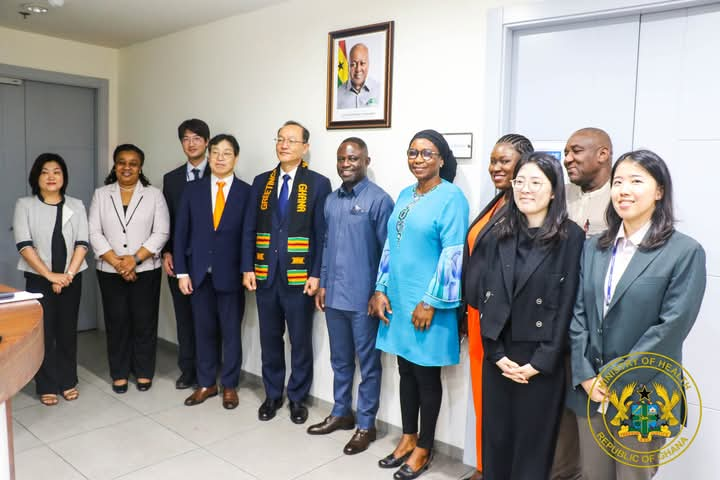His Excellency Park Kyongsig, the Korean Ambassador to Ghana, paid a courtesy call to the Minister of Health, Hon. Kwabena Mintah Akandoh, at the Ministry in Accra.
His visit is part of efforts to enhance the partnership in healthcare infrastructure, medical training, and strengthen health management capacity at the district and sub-district levels.
Ambassador Park Kyongsig highlighted Korea’s enduring support for Ghana’s healthcare development, emphasizing the importance of ongoing collaboration in maternal and child health, infectious disease control, and capacity building for healthcare workers.
“Korea is dedicated to strengthening Ghana’s health systems to ensure accessible and efficient medical services for all citizens”, he said.
The Korean Ambassador was accompanied by representatives from the Korea International Cooperation Agency (KOICA) and the Korea Foundation for International Healthcare (KOFIH).
Hon. Mintah Akandoh welcomed the Ambassador and acknowledged Korea’s unwavering support and the impact of past and ongoing projects.
He highlighted key areas, including the construction of additional Community-based Health Planning and Services (CHPS) facilities, the improvement of Ghana’s emergency medical services, upgrades to hospital infrastructure, and training programs for healthcare professionals.
He outlined the policy priorities under the John Mahama administration, which included the Ghana Medical Trust Fund, the provision of free primary healthcare, and the construction of regional hospitals in the newly created regions.
KOICA and KOFIH representatives presented their ongoing projects in Ghana, which include constructing modern healthcare facilities, providing medical equipment, and offering specialized training programs for local healthcare practitioners.
They reassured the Minister of their ongoing support for the advancement of Ghana’s health agenda.
Ministry of Health Ghana







OTHER ARTICLES
Editorial — Prevent, inform, and act for women’s health in Africa
Kenya : Government Prioritises Maternal Health and Strengthens Support for Community Health Promoters
Strengthening pandemic prevention, preparedness, and response capacities in Senegal using the “One Health” approach